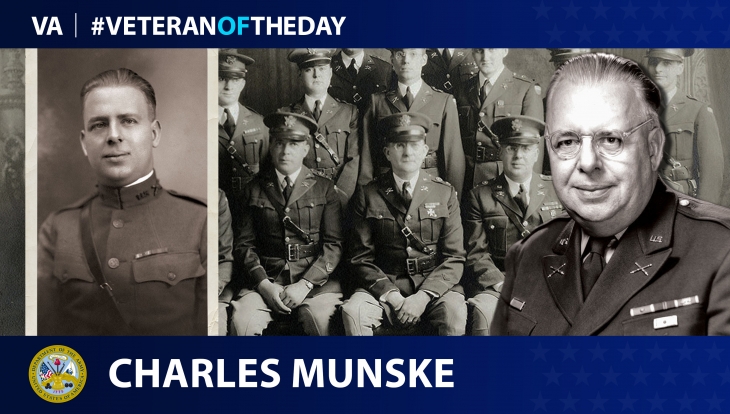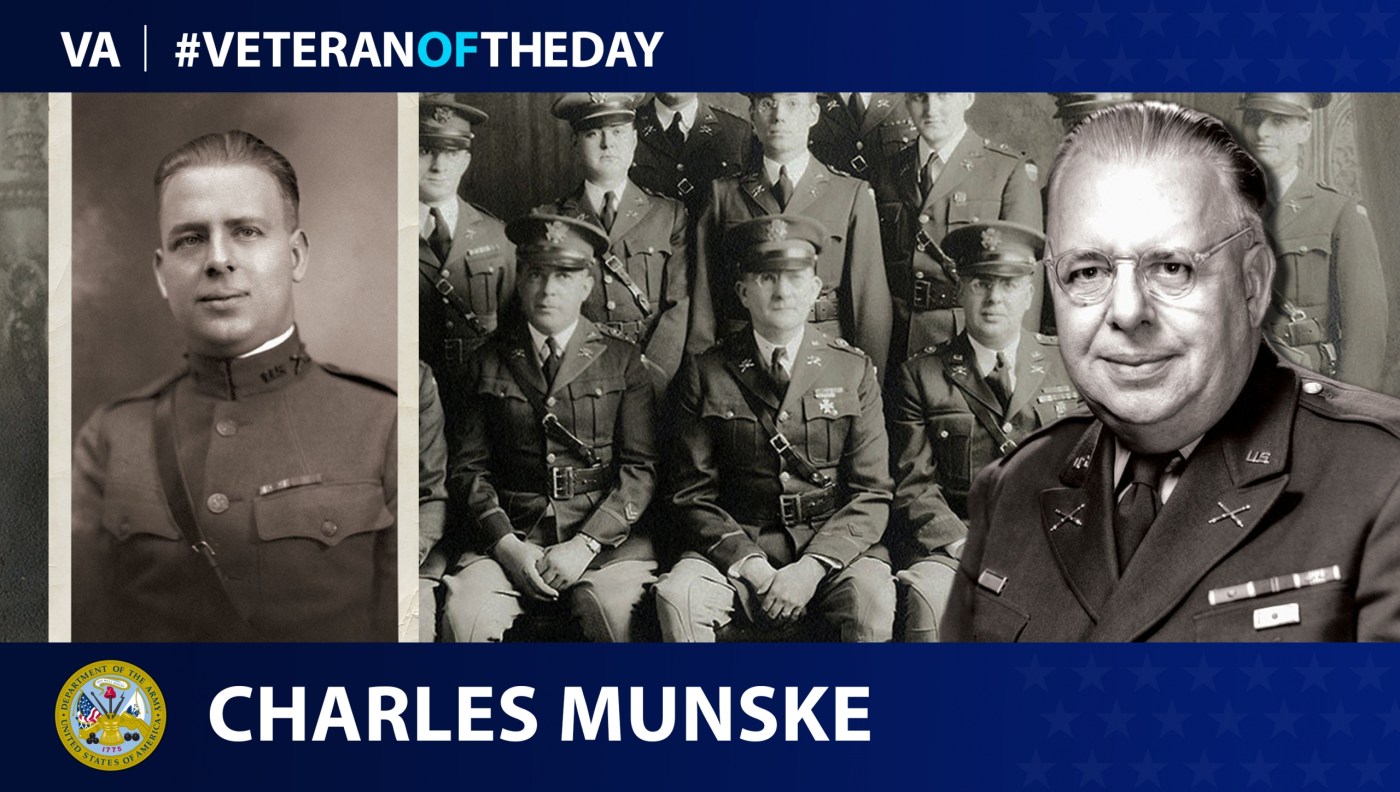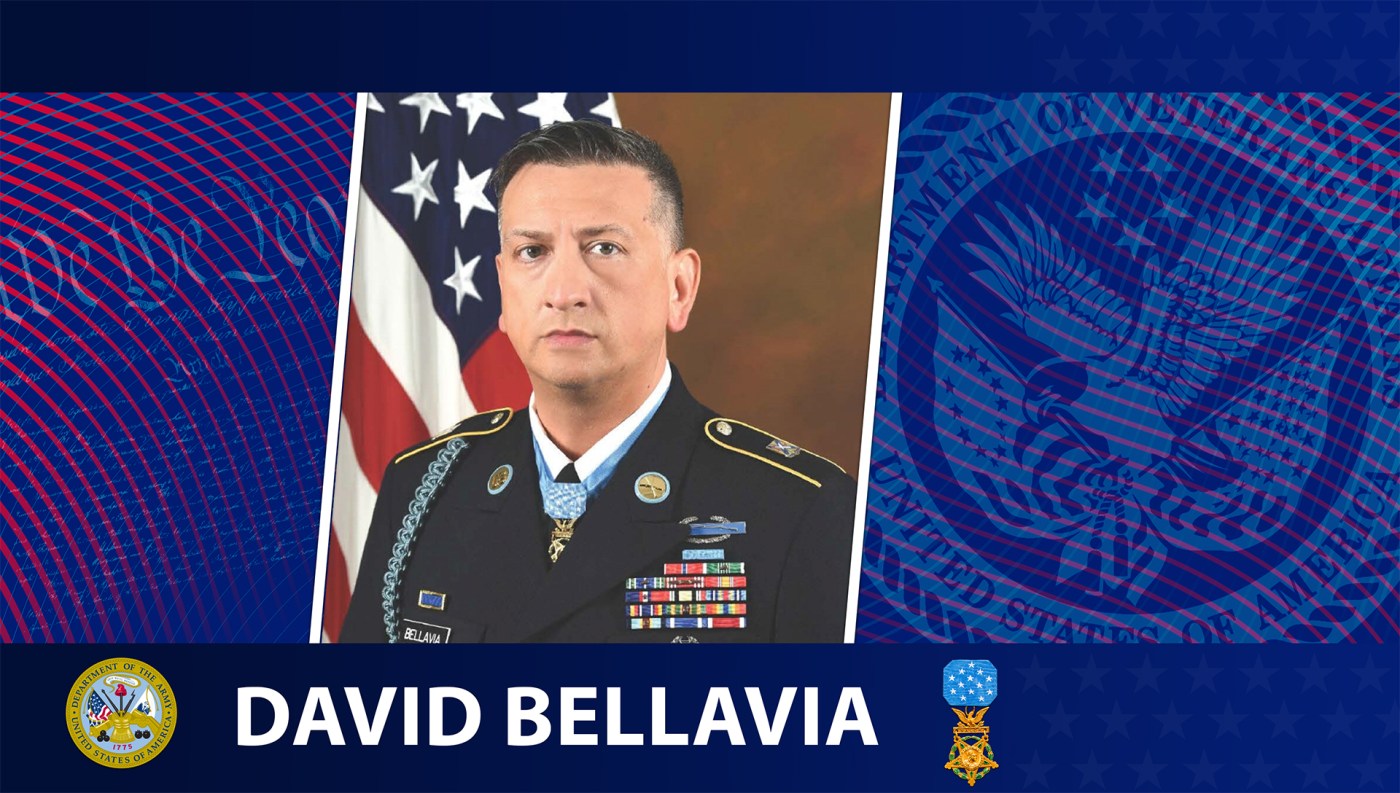
Today’s #VeteranOfTheDay is Army Veteran Charles Munske, who worked in civil affairs during World War I, World War II and the Korean War.
During World War I, Charles Munske was one of the few soldiers to avoid combat. He arrived in France in July 1918 and spent the last months of the war training with his unit in Angiers, France. However, Munske served in an important role as the German translator for the post-war Engineer Operations Division of War Damages in Allied Countries section of the American Commission during peace negotiations in Paris.
After returning to the U.S., Munske served in the New York National Guard. In 1940, he transferred to active duty in the Army. Munske served in various Coast Artillery units until 1944. He then attended the School of Military Government at the University of Virginia and received additional military government training at Harvard University. Near the end of World War II, Munske traveled to the Civil Affairs Staging Area at the Presidio in San Francisco, California, in preparation for deployment to Japan.
In 1945, Munske deployed to Osaka, Japan, to serve as the assistant chief of staff to the G-5 section of the 98th Infantry Division. Munske helped restart the local economy. This led him to learn Japan’s culture and language, which helped build relationships with the local population in Osaka and the surrounding prefectures. Munske received a Legion of Merit and an Army Commendation Medal because his work in Japan benefitted six million people.
When the Korean War began, Munske became the head of the Pyongyang Civil Assistance Team, a part of the United Nations Public Health and Welfare Detachment. Later, Munske became the “Mayor of Pyongyang” when the United Nations’ forces captured Pyongyang in October 1950. Munske was in charge of restoring the city by reestablishing the police, health care, trash collection, power and additional infrastructure components. In December 1950, Munske evacuated and destroyed his work when Chinese forces backing the North Korean Army approached the city. In 1951, Munske was placed in charge of rebuilding the cities of Seoul, Inchon and Suwon.
After the Korean War, Munske served as the inspector general of the New York Military District. He also served as a legal assistance officer and senior advisor for military government units and Reserve Officers Training Corps programs.
Munske retired in 1958 after spending 20 years in active service and nearly 43 years in the military. Munske passed away in 1985 and is buried in Arlington National Cemetery.
We honor his service.
Nominate a Veteran for #VeteranOfTheDay
Do you want to light up the face of a special Veteran? Have you been wondering how to tell your Veteran they are special to you? VA’s #VeteranOfTheDay social media feature is an opportunity to highlight your Veteran and his/her service.
It’s easy to nominate a Veteran. Visit our blog post about nominating to learn how to create the best submission.
Contributors
Writer: Raymond Lin
Editors: Christopher Wilson and Katherine Berman
Fact checker: Jordan Gossett
Graphic artist:
Topics in this story
More Stories
This week’s Honoring Veterans Spotlight honors the service of Army Veteran David Bellavia, who received a Medal of Honor from the Iraq War’s deadliest operation, the Second Battle of Fallujah.
This week’s Honoring Veterans Spotlight honors the service of Army Veteran Scotty Hasting, who served in Afghanistan.
This week’s Honoring Veterans Spotlight honors the service of Army Veteran Roy Sheldon, who served in 97th General Hospital in Frankfurt, Germany.







We honor the service of Charles Munske.